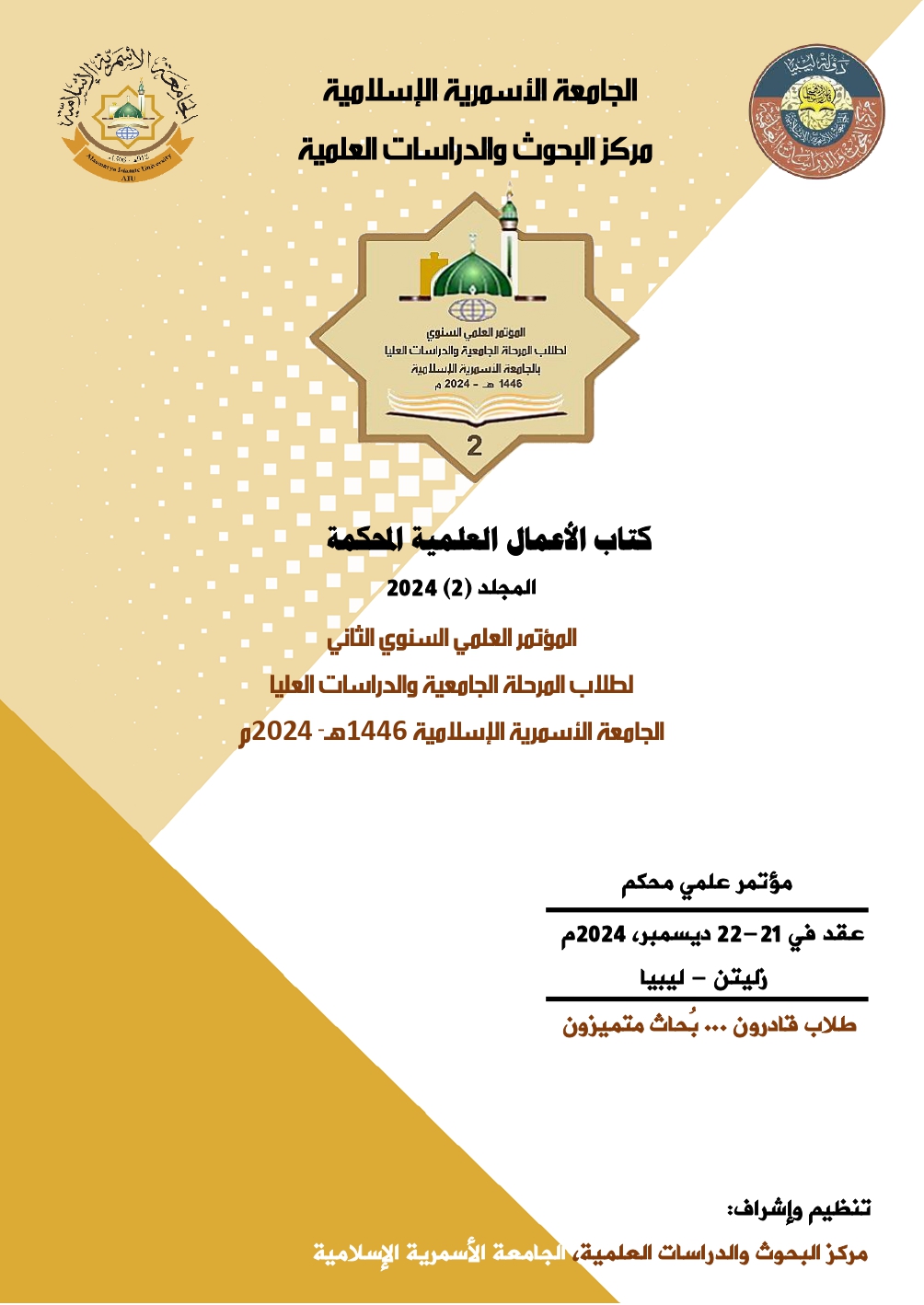The Role of Charitable Organizations in Achieving Sustainable Development: A Case Study of the Martyr Association’s Waste Collection and Recycling Program
Keywords:
Dynamic Variables, Sustainable Development, Circular Economy, Charitable Organizations, sEnvironmental AwarenesAbstract
The study aimed to examine the role of charitable organizations in Libya in achieving the goals of sustainable development, with a focus on the "Martyr Association" in Zliten. It explored the impact of charitable initiatives—such as the collection and recycling of plastic waste—on sustainable development and environmental awareness within the local community, particularly in the absence of government support and amid significant environmental challenges. An analytical descriptive methodology was adopted, combining data collection from the association with analysis techniques to assess its contribution to sustainable development. Surveys were also used to test the study’s hypotheses. The results indicated a positive correlation between annual profits and the quantity of waste collected, with an impact coefficient of 0.000153, reflecting moderate statistical significance and a non-linear relationship. The quantity of waste emerged as a key factor in increasing profits, with an impact coefficient of 105.75, highlighting the importance of waste as a revenue-enhancing resource. The study further revealed that such initiatives contributed to sustainable development by improving environmental and social conditions, raising environmental awareness, and providing locally sourced raw materials. Based on these findings, the study recommends enhancing environmental awareness through media and education, and increasing investment in waste collection to support the financial sustainability of charitable organizations. It also calls for greater collaboration among charitable institutions, the government, and the private sector to achieve sustainable development goals and improve the quality of life in Libya.
Downloads
References
أبو كريشة، عبد الرحيم (2003). دراسات في علم اجتماع التنمية. المكتب الجامعي الحديث، الإسكندرية، مصر.
الأمم المتحدة (د.ت.). الأثر الأكاديمي: الاستدامة. متاحة على الرابط: [https://www.un.org/ar/122274]
الأمم المتحدة (د.ت.). أهداف التنمية المستدامة. على الرابط: [https://www.un.org/sustainable-development/ar/]
أبو نصر، مدحت(2017). التنمية المستدامة، المجموعة العربية للتدريب والنشر، القاهرة ، الطبعة الأولى، مصر.
الجديبي، رأفت (2019). الجمعيات الخيرية ودورها في تحقيق بعض قيم التنمية المستدامة الاجتماعية. المؤتمر العلمي الدولي السادس بعنوان التعليم النوعي وبناء الإنسان. بحوث في التربية النوعية، 35(1)، 762–798.
بشير، هشام (د.ت.). التنمية المستدامة ، متاحة على الشبكة العربية للتنمية المستدامة. متاحة على الرابط: [https://ansd.info/main/print.php?id=10540].
يلي، نادر عبدالرزاق علي (2023). دور الجمعيات الخيرية في المساهمة في التنمية المستدامة في ضوء رؤية المملكة العربية السعودية 2030: دراسة مطبقة على أعضاء وعضوات هيئة التدريس والهيئة المعاونة بجامعة أم القرى بمكة المكرمة. مجلة جامعة أم القرى للعلوم الاجتماعية، 77(1)، 116-148.
معروف، هوشيار (2005). دراسات في التنمية الاقتصادية، الطبعة الأولى. دار الصفاء للنشر، الأردن.
Downloads
Published
Conference Proceedings Volume
Section
License

This work is licensed under a Creative Commons Attribution-NonCommercial-NoDerivatives 4.0 International License.





